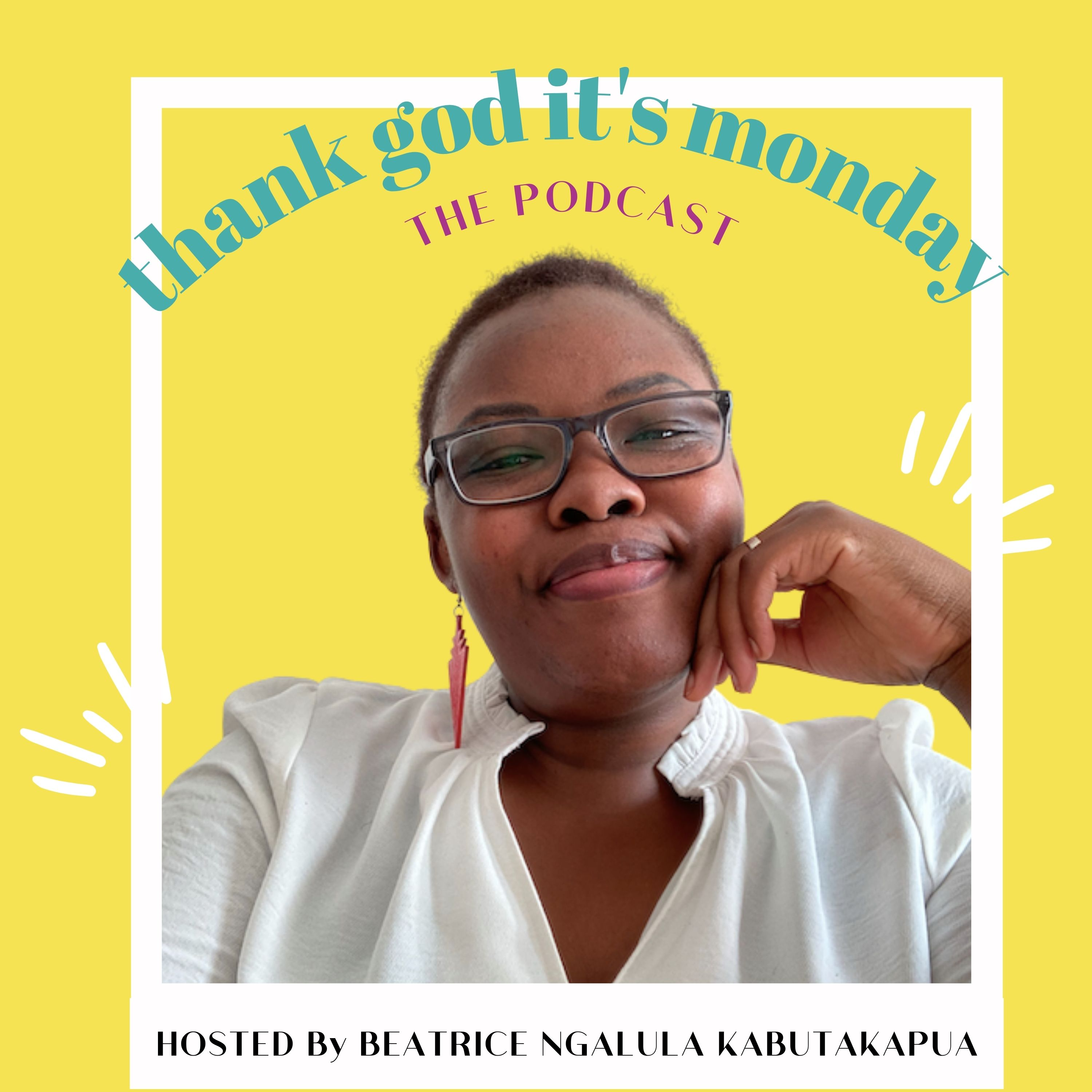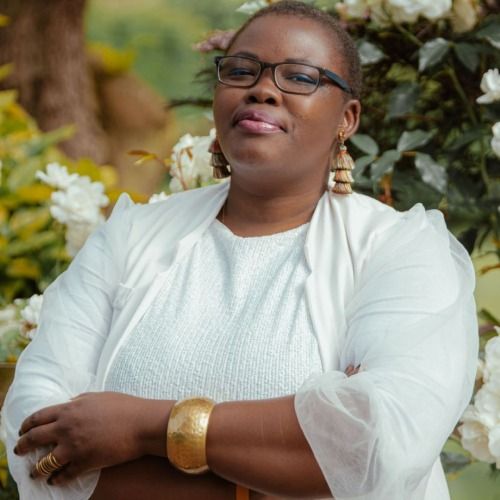How to be your company's storyteller
Who is the leader in your organisation? Surely, they are the decision-makers. But in case you haven’t noticed, everyone who has a voice is a leader. And leaders tell stories: to influence, to inspire, to explain, to attract and retain. In this episode, I share with you how you can become your company storyteller even if you don’t feel like you have the right skills or level of influence.
Some of the topics I talk about in this podcast are:
- Why everyone is a storyteller [02:25]
- How to enroll into my course on to shape engaging stories [03:35]
- Why people find it hard to tell their own stories [04:07]
- Why everyone is a leader and can make change happen [05:22]
- Key qualities of a leader [06:38]
- How to shape your message for your audience [10:54]
- Homework: Questions to help you become your company storyteller [12:15]
Key resources mentioned in this episode:
LinkedIn is where I hang out most and also where I love to have conversations with my current, former and future clients partners such as teams at Netflix. Connect with me on LinkedIn here: https://www.linkedin.com/in/beatrice-ngalula-kabutakapua/
If you are more of a Twitter person, I’d love to connect there as well. This is where you can read what I share about business storytelling, my proud moments as a mom of curious and encouraging children and the latest blog posts I published. Follow me on Twitter: https://twitter.com/Kabutakapua
Learn how business storytelling engages employees and improves external communication. Download the white paper https://kabutakapua.com/powerful-beyond-measure/
Learn and practice storytelling to change the world summer course: helping communication people write more compelling stories so that they are inspired, inspiring and can honor the people behind those stories. Join the waitlist here: https://www.subscribepage.com/storytellingcourse
Receive monthly reflections, resources and case studies on business storytelling. Sign up for free to my newsletter: https://subscribepage.com/powerfulbeyond
Book a free introductory call with me so that we can discuss with no obligation, what your organisation is focussing on right now and what steps you need to take next. Book a call here: https://app.acuityscheduling.com/schedule.php?owner=19512995&appointmentType=20183245
Transcript
0:00
alist, and training more than:4:50
I thought it wasn't relevant. I thought that it wasn't the point because I needed to share other people's stories. So why sharing mine and this change? When I moved to documentary making, I self produced a documentary series on African migrants in 12 different cities in the world. And when I was doing when I was travelling around the world to produce this documentary, I was asked the question of why do you do that? Why do you care about sharing the stories of migrants from so many different places? And in order for me to answer to that question, I really needed to share my own story, I needed to share with them that I was born in Italy, that my parents came from the DRC, from Congo, in the 80s, and the 70s. And their stories of being African migrants in a country where the majority definitely isn't from Africa. Their story wasn't really portrayed in the media. It wasn't there, it wasn't out there. So I made it my mission, to make sure that their stories were there. But because I wasn't, I wasn't okay with just sharing their stories, I wanted to see how many other people had a similar experience or similar stories to share, that weren't put on the forefront in the medium, because I wanted to do that. And because I wanted to see with my own eyes, what it look like to leave for other people to leave in other countries. When the word minorities, I started doing the documentary, I wanted to share a different story, different narrative around my African migrants. So that was my wife. And in order for me to share my why I needed to share my story. And the more I shared my story, the more I felt more confident, the more I felt more connected to people, the more I felt clearer as well with my path, and the more I was also able to influence the people that I was meeting and that I was connecting with. So these process, my own process led me to think well, if I'm the one becoming more confident and more clear, and more able to articulate while the one to do and what's my story, maybe I can help other people with similar background to mine to do the same. And that's how I started to work as a storytelling coach. And that was focusing on business, because I've always been fascinated with business and how we can make a change through the work that we do through the businesses that we create. And when I worked with women of colour entrepreneurs, I realised that many of them left their corporate jobs, to start their own businesses. And the stories that they were sharing. In some instances of their work in the corporate job were quite something. Some of them have stories of trauma, some of them had stories of simply not being able to align their values to those of the company or simple or the other way around. So the company wasn't really aligning their values to their employees. And I was so grateful for working with them, and for helping them to find their right path through their stories and through to their businesses. But this also kind of lit up a question in my mind. And I started thinking, well, if these storytelling process works for individuals, and they're more motivated, and they're clear, they're more focused on the work because they know why they're doing what they're doing. Surely, it should help also people and employees who are currently working in an organisation. So this is how I started to work with companies and helping them supporting them in using stories, to really motivate the employees to translate the purpose of what they do into practical stories into things that people can see it can almost touch. And the idea behind this podcast is to tell you a little bit about what I've discovered in the past years working with companies but also enabling you to understand how you can start your own journey in business storytelling, how you can help your own team and your company, your organisation in using stories, to make it clear what the mission behind the business is. Because once we are clear on the mission, then it's much easier to be motivated. We are much more focused and we are happy at work.
9:48
Which is why this podcast is called Thank God it's Monday because honestly, we have been sold this idea that in order to have a job a good job In order to just, you know, go to work we need to be, we need to be sad about it, we need to complain about it, we need to get to our Fridays and say, oh, gosh, thank God, it's Friday. And of course, I'm not saying that work should be light and super fun all of the time. I know I have my low moments in my own business, I know that I'm not 100% all of the time. But what I'm saying is that not having a direction, not having a reason behind what why you do what you're doing, not making sure not not being able to see what the vision is, it, it's really what brings people to be motivated and to be happier for the weekend. It's a matter of not having the values of the company are aligned with the actual actions of the company. So what I hear, it's not what they see. And this is a concept that we'll unpack more in the next episode, the concept that business storytelling is not just about the story, it's about the action related to the stories, but we are going to talk about it later. For now, I just want you to know that I'm happy and grateful that you're listening to this podcast, do reach out on social media, I'm most of the time on LinkedIn, and on Twitter, you can find me at Beatrice Ngalula, Kabutakapua, on LinkedIn, you can really just look for storytelling, Beatrice and a will come up. And I want you to remember that it's okay, to make sure that you are happy on Monday. It's okay for you to know that work. And workplaces can be fun, and not just fun. But that what you're doing really matters. But sometimes companies and leaders and organisations and the team's, we get so stuck into the day to day work that we forget to will to remind ourselves of why we do what we are doing, to monitor the impact of what we are doing. And then we get tired, we get tired so easily, easily. We get tired so quickly. And when we are tired, we are obviously not motivated. We don't want to do more. And if this circle continues, we just feel like we want to leave. So thank you for joining me. Thank you for listening to this podcast, I want to thank you for starting this journey with me. I'm really, really curious to know a little bit more about your story, what brought you to your current role and what's motivating you in your role. So make sure to send me a message on Twitter or on LinkedIn. And if you're ready to have a chat with me just book a call using the link in the Episode Notes. I'll see you in the next episode. I am Beatrice nathula COMM Kabutakapua And you have been listening to thank god, it's Monday. Now it's time to share your key takeaways from this episode. Connect with me on LinkedIn and Twitter. And if you haven't yet, subscribe, rate and review this podcast. Thank you for listening


